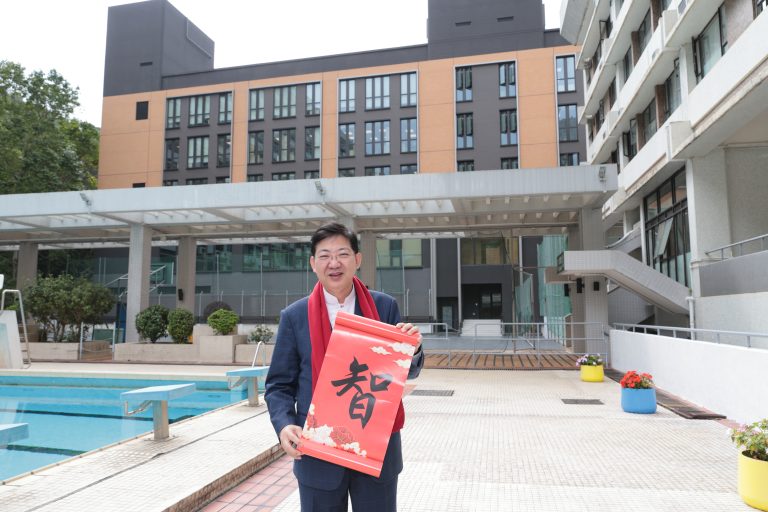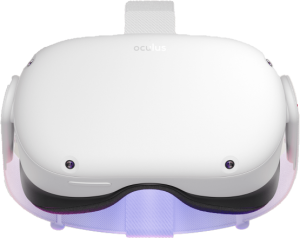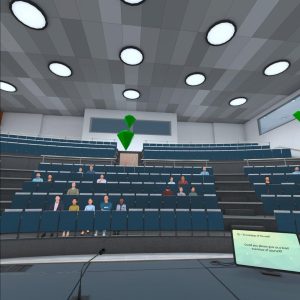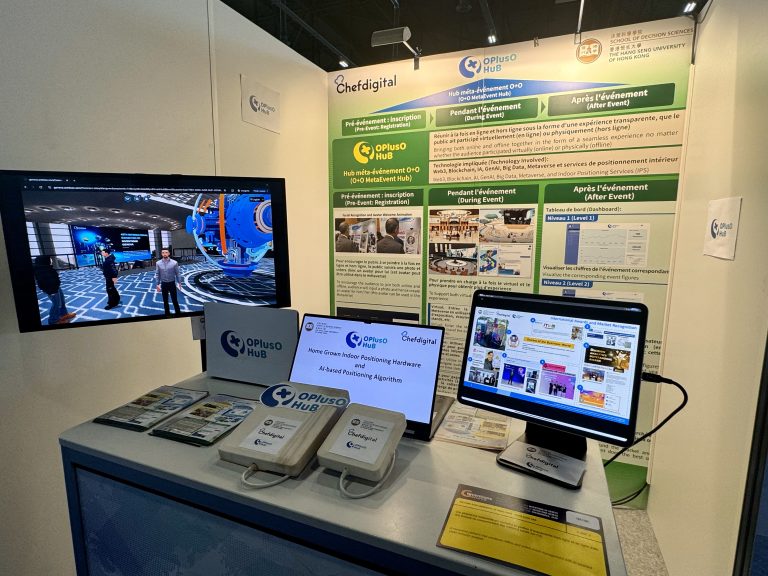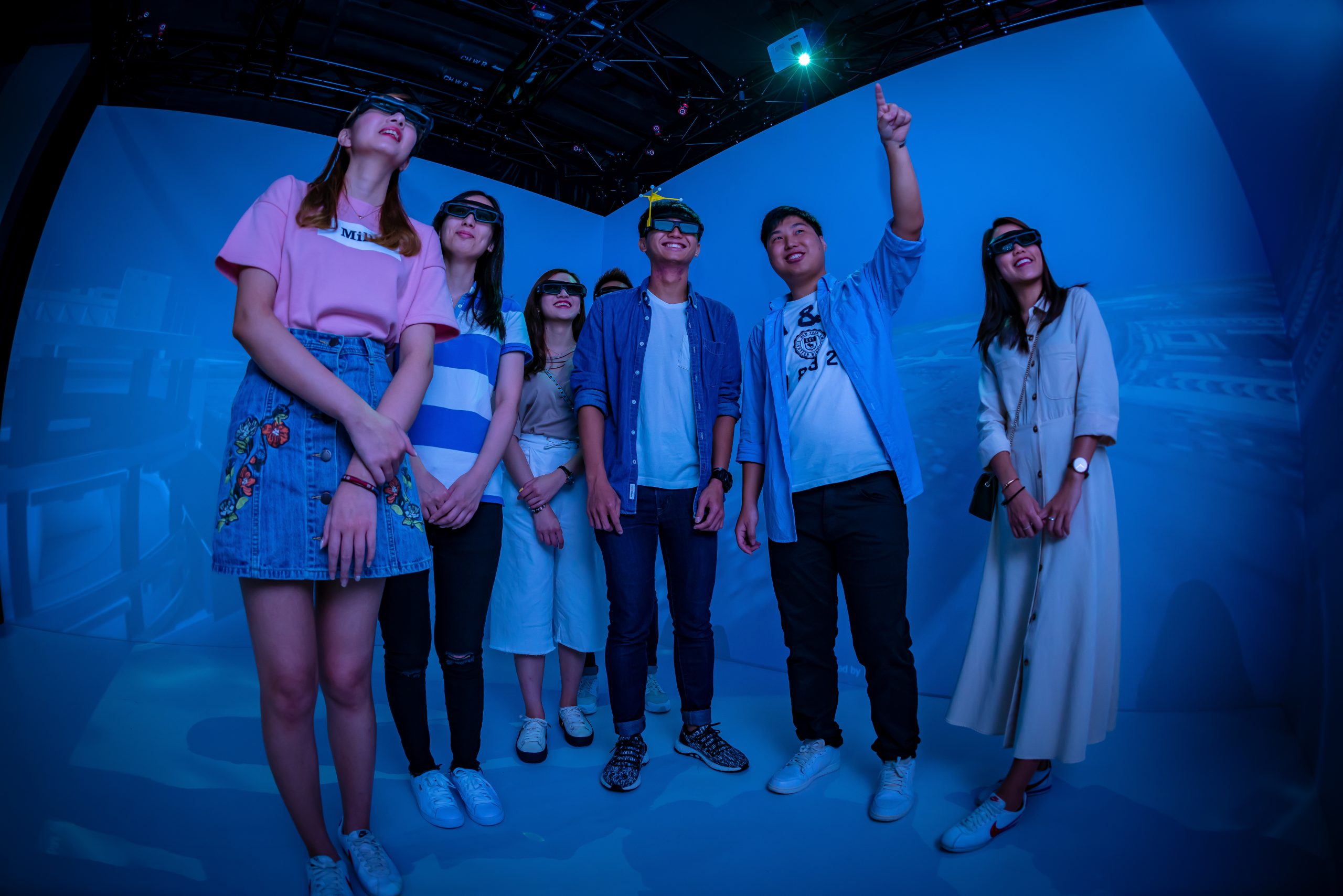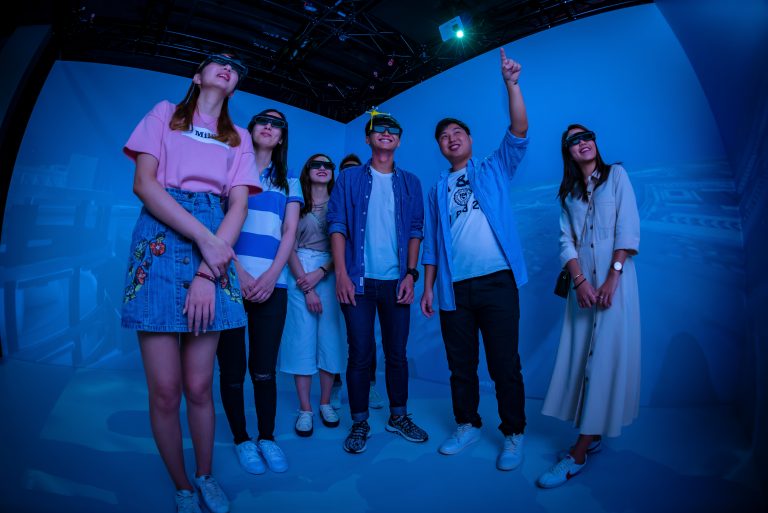
Earlier this year, Professor Simon S M Ho, President of The Hang Seng University of Hong Kong (HSUHK), revealed HSUHK’s Character of the Year “智” (“Wisdom”) at the Spring Media Reception. At HSUHK, the word“wisdom” will carry more importance than ever as the University continues to grow and educate talent in a world where reliance on Artificial Int elligence (AI) is increasing exponentially.
President Ho further elaborated “Generative AI such as ChatGPT has revolutionised various industries and will continue to transform how humans live, learn and work, and in such a time, more wisdom is needed not only to guide AI users in using new technologies responsibly, but also in what they aim to achieve with the use of AI.” “Wisdom” also refers to the ethical and moral intelligence that comes with the increasing use of AI. Students and staff need to learn how to distinguish the truth, be responsible in making one’s own choices and judgement, and respect academic integrity and intellectual property rights as the use of AI becomes more widespread.
“In an AI era, universities should strengthen their leading roles in producing and disseminating new knowledge and informing societal changes. Teachers should also revise their roles and pedagogies to make room for more individualised learning guidance to inspire their students,” says President Ho.
Preparing students and staff to embrace AI
Keeping the advancement and integration of AI in mind, HSUHK is cultivating students’ knowledge and attitudes in the field. In early 2023, HSUHK was among the first universities in Hong Kong to announce the offering of ChatGPT on its own platform for its staff and students to use freely. HSUHK also provides users with guidelines and trainings to ensure that they use the AI tool wisely. Dr Ben Cheng, Director of the Centre for Teaching and Learning, says “The guidelines offer a general direction for members of HSUHK on the use of generative AI in teaching and learning, while promoting digital literacy and critical thinking abilities.”
Dr Cheng further added that the guidelines also emphasise that students should acknowledge the use of AI and credit the AI tools used to uphold academic integrity, originality and the authenticity of their work, and in doing so, make wise choices about how, where, when, why and what they use AI tools.
Applying AI in teaching and learning
In mid-2023, HSUHK partnered with Amazon Web Services to establish the first Cloud Innovation School (CIS) in Hong Kong, which offers students and teachers on-demand training on cloud computing, cloud security, cloud data engineering, cloud machine learning and AI. These practical course materials provide self-directed learning opportunities to supplement students’ learning experiences beyond conventional classroom education.
Dr Daniel Mo, Head of CIS and Associate Dean of School of Decision Sciences, says “I consider the AI-focused programmes at HSUHK to be well-aligned with industry needs for talent in Hong Kong. Our programmes not only utilise the latest market-standard artificial intelligence software but are also developing our own featured AI-based solutions to drive future industry changes.” The University has also incorporated AI elements in various undergraduate and postgraduate programmes, as well as in its general education modules for all undergraduates, that include a variety of data from international and regional case studies.
Boosting R&D on AI
In addition to applying AI in academic research across various disciplines, HSUHK is also dedicated to advancing the research and development of AI tools. Dr Tan Li, Assistant Professor at the Department of Computer Science, shared “Our efforts span both system-oriented and algorithm-oriented research, promoting a comprehensive understanding and implementation of AI technologies.” HSUHK is applying AI algorithms to develop edge intelligence systems and e-commence systems to enhance collaborative learning between connected devices in areas such as the Internet of Things (IoT) with the goal to facilitate efficient cooperation among various smart devices at the “edge” of the network. HSUHK is also working on the most current and popular areas of natural language processing (NLP) and foundational AI models, preparing them to be applied in areas such as financial opinion analysis, customer need analysis and language learning.
She further elaborated that “In the AI research, we view wisdom primarily as a guiding force that provides our AI models with the necessary experience and direction. Wisdom in AI stems largely from big data, and it is through data that our models gain the insights needed to perform complex tasks.” HSUHK’s Big Data Intelligence Centre has also been conducting applied research on big data and AI.
Integrating AI across the University community
The University Library serves a unique role in enhancing AI in teaching, learning and research. Mr Michael Cheng, University Librarian, says HSUHK’s library resources encompass a wide range of databases, books and journal articles to facilitate the needs of students, staff and researchers. A recent example is the provision of the new “VR Speech Trainer” that provides different virtual scenarios for speech practice with real-time AI feedback and detailed AI analytics.
In addition to co-organising talks and workshops for staff and students on the use of wisdom in applying AI tools, the Library also consistently evaluates and explores AI-embedded databases and resources for trial by the University community, ensuring that HSUHK has the most advanced tools and resources to support research activities.
In discussing the impact of AI on students’ future development, President Ho is optimistic: “While HSUHK embraces AI, it is important for us to educate our students on the wisdom needed to understand their own strengths over AI, allowing them to cultivate personal values and transferable competencies, and become responsible global citizens who can handle complex challenges in work and life with confidence and fulfilment in the future.”
President Ho says, “Our University’s unique ‘Liberal + Professional’ education model nurtures students’ five core qualities (5Cs), namely Critical thinking, Creativity, Communication and Collaboration, Caring attitudes, and Continuous active learning. These transferrable competencies are difficult to replace with AI.”
